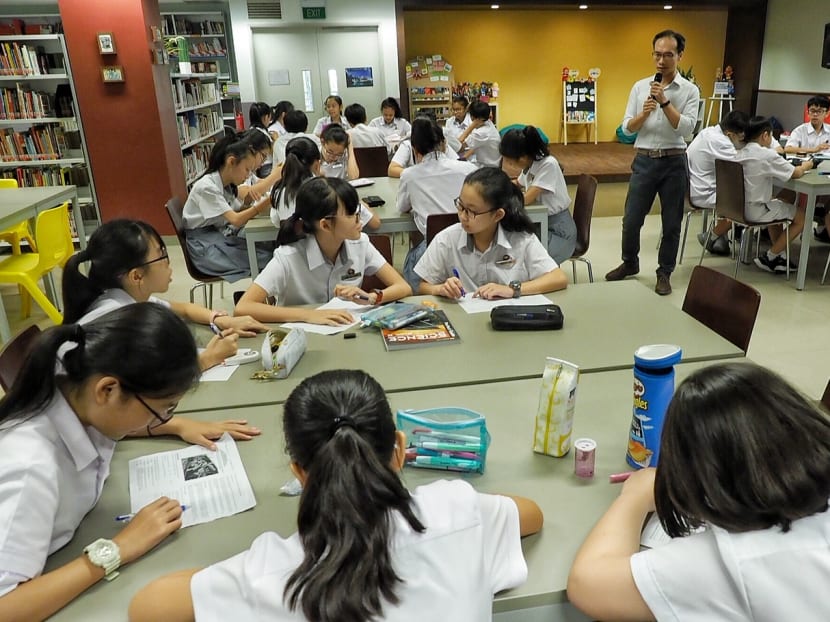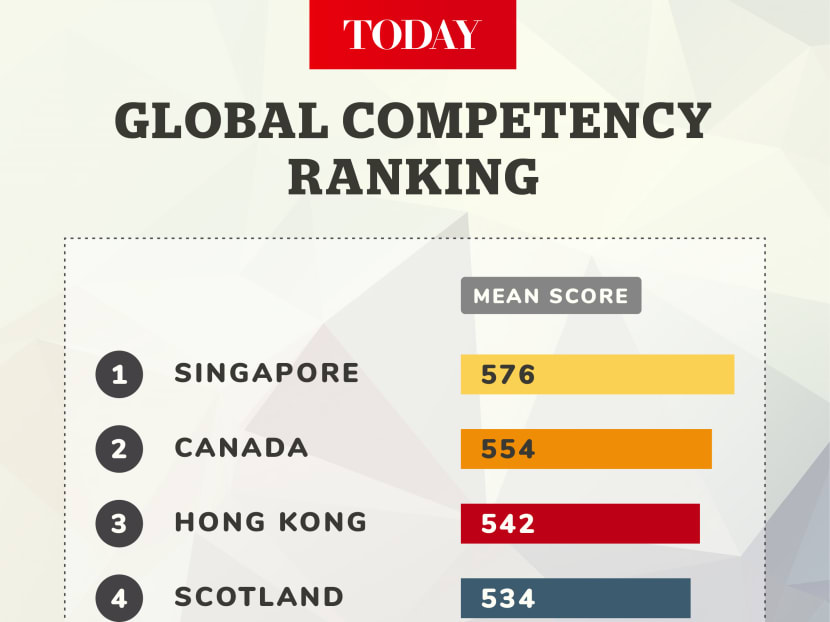S’pore students beat peers from 26 countries in Pisa test on awareness of global issues, intercultural skills
SINGAPORE — Singapore students came out tops in a global test for their intercultural skills, awareness of global issues and ability to appreciate different perspectives.

Singapore students have generally performed consistently well in the reading, mathematics and science components.
- Students showed that they could evaluate information to differentiate between biased and unbiased sources
- Nearly half of Singapore students achieved the highest proficiency levels in global competence
- They reported higher self-efficacy in issues such as climate change and global warming compared to matters related to the global economy
SINGAPORE — Singapore students came out tops in a global test for their intercultural skills, awareness of global issues and ability to appreciate different perspectives.
The Organisation for Economic Cooperation and Development (OECD), which conducts the test, said that nearly half of students here could, among other things, evaluate information to differentiate between biased and unbiased sources, and assess situations.
This is higher than the average of 14 per cent across 27 education systems.
The global competence test, which involved 15-year-old students, was part of the 2018 Programme for International Student Assessment (Pisa).
The Ministry of Education (MOE) released the results of the test on Thursday (Oct 22).
Pisa, which involves 79 education systems, is held every three years and tests students’ ability to apply their knowledge and skills in reading, mathematics and science.
Since 2012, it has included an “innovative domain” that changes every time the test is conducted.
OECD also found that students here ranked among the top six scorers when performance in reading, mathematics and science were accounted for in the computation of global competence. MOE did not provide an exact ranking for this.
Singapore students have generally performed consistently well in the reading, mathematics and science components.
The results of the 2018 test for these subjects were released in December and Singapore students performed well but were edged out by China.
In the previous test carried out in 2015, Singapore came out tops in all three categories.
In Singapore, 6,676 students — mostly those in Secondary 4 — participated in the most recent study. The students came from all 153 public secondary schools and 13 randomly sampled private schools, which include international and religious schools.

LOWER SES S’PORE STUDENTS DID BETTER THAN THOSE IN OTHER COUNTRIES
Overall, Singapore students showed strong ability and disposition in:
Examining issues and situations of local, global and cultural significance
Understanding and appreciating different perspectives and worldview
Taking constructive action for collective well-being and sustainable development
Singapore students in the bottom quarter socio-economic status (SES) also did better than students in the same income bracket from other countries.
Some 26 per cent of lower SES students in Singapore performed at the highest two proficiency levels.
Their mean score of 522 is above the average score of both lower SES and higher SES students in other countries, at 437 and 511 respectively.
STRENGTHS AND WEAKNESSES
While Singapore students’ awareness of global matters is comparable to that of their OECD peers, they reported higher self-efficacy in topics such as climate change and global warming.
More than eight in 10 Singapore students are "confident" in explaining issues related to climate change, such as how carbon dioxide emissions play a role, compared to the OECD average of 63 per cent.
When it came to explaining issues related to the global economy, however, only about half of Singapore students could do so — slightly lower than the OECD average of 58 per cent.
The Pisa test also found that Singapore students are “less confident” in their own ability to adapt their thinking and behaviours in some situations, compared to their OECD peers.
They were outperformed by their peers in terms of their “self-perceived cognitive adaptability” – which OECD defines as the ability to adapt one’s thinking and behaviour to the prevailing cultural environment or novel situations that might present new challenges.
Only 50 per cent of the students believe they can deal with novel situations versus the OECD average of 59 per cent.
Cognitive adaptability is positively associated with students’ resilience, such as confidence in managing difficult situations.
The MOE said it would continue to help students strengthen their cognitive adaptability and develop greater confidence when facing new challenges, through various learning experiences across subjects and school programmes.
It added that the knowledge, skills and attitudes measured in the Pisa global competence domain are aligned with relevant aspects in MOE’s 21st Century Competency framework, which aims to help students develop skills such as civic literacy and global awareness.
“These are increasingly important outcomes of education, beyond academic learning, for our students to thrive in adulthood,” said the ministry.
Mr Sng Chern Wei, the deputy director-general of education (curriculum) at MOE, said recent events such as the Covid-19 pandemic, with its worldwide ramifications, have underscored the continued relevance of global competence.
He said that MOE would continue to nurture such competencies in students here so that they can “participate constructively” as responsible members of the local and global community.











